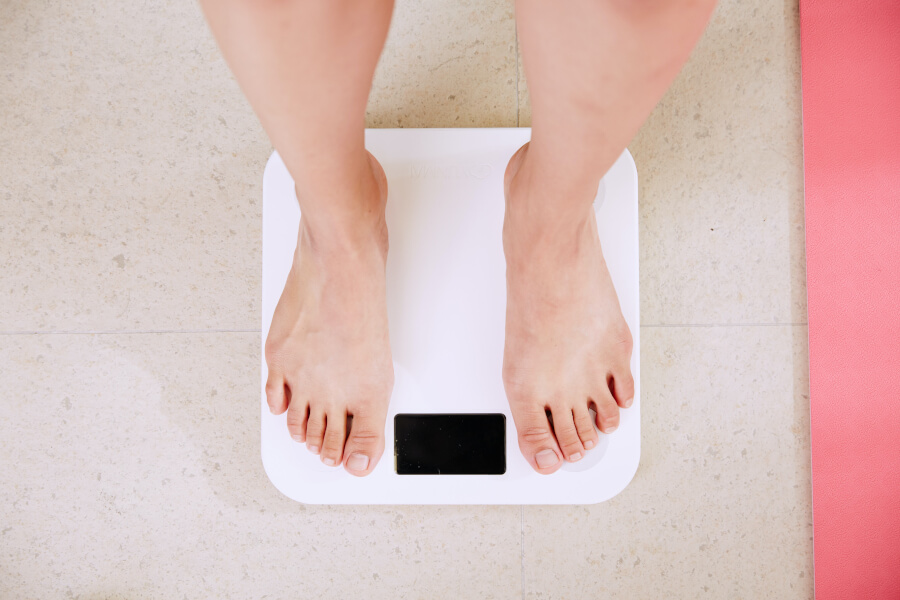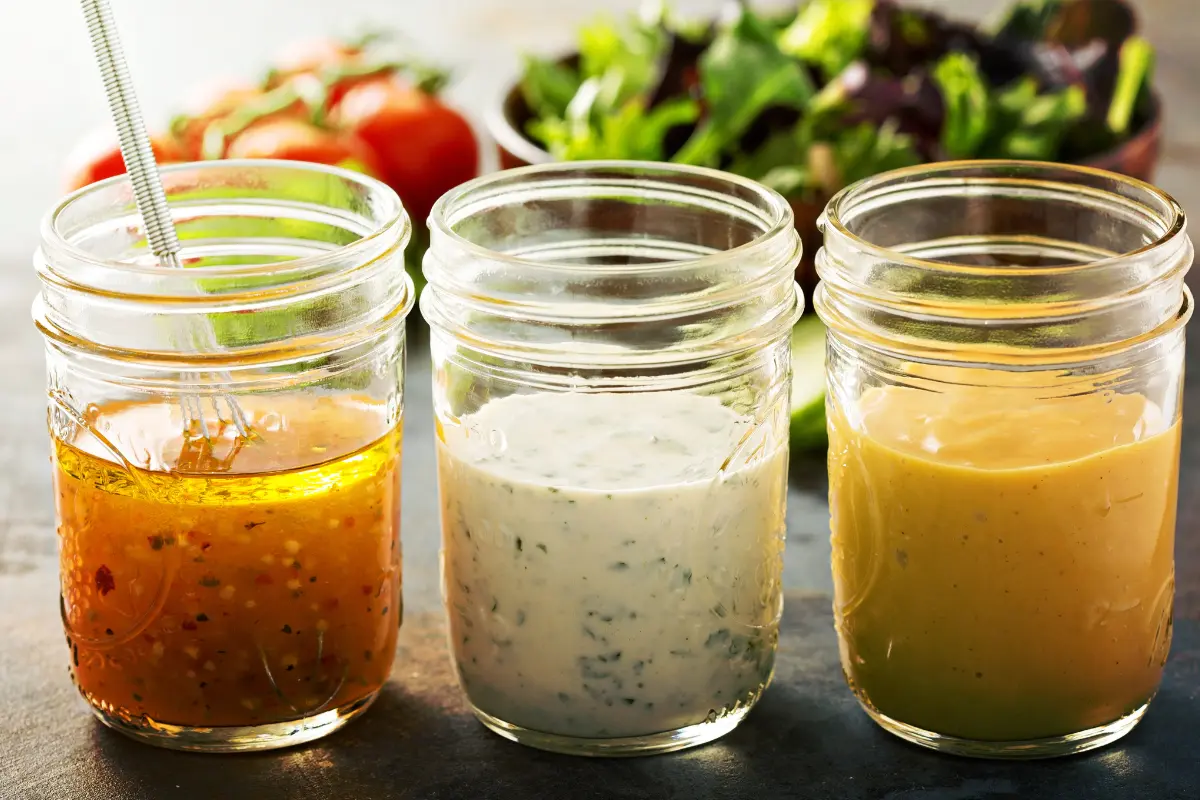
"Why can’t I lose weight?” is a common question, and it's unsurprising since the weight loss process is more than just calories in/calories out and has many moving pieces.
Understanding the variables at play is important to gain the knowledge and tools necessary to reach your goal as soon as possible. At WAG Nutrition Coaching, we work with you to determine which variables may impact your weight loss journey and what steps you need to take to reach your goals.

Here are six things that could be holding you back from losing weight that a coach may consider:
- You’re not in a true calorie deficit
- You don’t know your starting metabolism
- Your exercise style/intensity doesn’t support weight loss
- Stress and stress eating
- You’re relying too much on willpower
- You need more accountability
Now, let’s dig into each and learn some strategies to overcome them!
Advertisement
1. You’re Not In a Calorie Deficit to Lose Weight
First things first! To lose weight you have to be in a calorie deficit. So, if you’re struggling to lose weight, one of the first things to do is ensure you are in a true calorie deficit (meaning you’re consuming fewer calories than you’re expending).
Oftentimes, the things holding you back from being in a calorie deficit are:
- Not tracking your food to get a baseline of your body’s caloric needs
- Overestimating your exercise
- Underestimating your food intake
How Many Calories Should I Eat Per Day?
To determine how many calories you need to be in a calorie deficit, you’ll need to determine your Total Daily Energy Expenditure (TDEE) or baseline calories. Your TDEE represents the number of calories your body needs to function and maintain your current body weight.
To figure out your TDEE, read this article and follow along with our online macro calculator.
Advertisement
Most online macro calculators use one of several different equations to calculate your maintenance and require information like age, sex, current weight, goals, and activity level or “activity multiplier”.
However, as mentioned above, many people drastically overestimate their activity level, so to be accurate, you need to be as honest as possible about your activity level.
Hint: If you do CrossFit four times a week but have a desk job and a sedentary lifestyle, you are likely not “very active.”
How to Calculate a Calorie Deficit
Once you’ve calculated your TDEE or maintenance calories, the next step is to calculate your calorie deficit. This will predict how many calories you need to eat daily to lose weight.
Several factors must be considered when deciding on a calorie deficit. You need a unique calorie deficit based on your current body composition, lifestyle, goals, schedule, and values.
Advertisement
For example, if performance is really important to you, you might not want to be in a huge deficit as the potential for negative performance impacts is greater. In this case, you might opt for a 15% deficit rather than 25%.
On the flip side, if you have a specific deadline for losing a certain amount of weight and have more weight to lose, a larger deficit might be a good option.
What are The Best Foods for Weight Loss
Once you’ve found your calorie deficit, it’s time to consistently hit your targets to stick to your deficit. Remember that one of the easiest ways to stop making progress is to underestimate your food intake and throw yourself out of a deficit.
There are many ways to underestimate food intake. Maybe you consistently eat 200 calories a day (that’s 1400 calories per week!) with handfuls of untracked snacks or bites of your kids’ leftovers. Or, maybe you nail your targets during the week but “treat yourself” on weekends and end up 500 calories over your goals each day (another 1,000 calories to your week).
So, not only is it super helpful to track your food intake to ensure a consistent deficit, but it’s also important to pay attention to the types of foods you eat.
Advertisement
As calories go down, it’s not unusual to feel hunger increase. This makes sense since you’re eating less than normal and expecting your body to function similarly, right?
To help mitigate that hunger, prioritize whole, unprocessed foods. Whole foods keep you satisfied and full while providing you with the vitamins and minerals your body needs to maintain proper health and function. Whole foods are generally higher in volume, which can create more feelings of fullness, even with fewer calories.
If you’re wondering what to cook to lose weight, check out the WAG Recipes for delicious, easy, and nutrient-dense recipes that will fit your macros!
Remember that some people might not be ready for a deficit. If your stress is super high, you’ve been undereating, or you have gone through a recent calorie deficit, you might not be ready to lose weight. Instead, working on eating more first to lose weight later might be beneficial.
Advertisement
2. You Don’t Know Your Starting Metabolism
If you’ve been undereating (intentionally or unintentionally) for a while, your metabolism likely isn’t functioning at its highest potential. If you’ve been trying to lose weight by eating super low calories but don’t see any results, this is likely what is happening.
Your body has adapted to the lower calories, and your TDEE has declined. Therefore, you aren’t really in a calorie deficit. Stress also increases when you’re in a calorie deficit for a long time, which can significantly impact your body’s ability to burn fat. So if you want to lose weight, you’ll most likely have to spend some time NOT dieting first.
This is what it means when you hear, “you have to earn the right to diet”.
How Does Your Metabolism Work?
Your metabolism is incredibly adaptive! It’s the sum of all the processes going on in your body at all times. So the foods you eat, how active you are, your stress, etc., will ultimately influence your body and metabolism. If you’re eating more or less than normal (or working out more or less than normal), your metabolism will gradually ‘adapt’ by increasing or decreasing in order to maintain homeostasis.
Undereating and Weight Gain
Your metabolism has five main components: BMR, RMR, NEAT, TEF, and EAT.
Advertisement
Each of these components can be impacted by undereating or ‘dieting’ and will decrease, leading to lower metabolism.
For example, if you aren’t eating enough to support your muscle mass, your RMR and BMR will decrease. This means that you will burn fewer calories when at rest. Remember that the more muscle mass you have, the higher your RMR and BMR. So, if you’re unable to support healthy muscle mass, you could see an increase in weight gain even if you are eating really low calories.
It might sound counterintuitive, but eating less won’t always equate to weight loss. In fact, chronic under-eating will often lead to weight gain. Undereating can also contribute to hormonal changes and imbalances, which can cause unwanted fat storage and changes to hunger and satiation signals, not to mention negative impacts on your energy and overall health [1].
How to Restart Your Metabolism After Dieting
If you have been dieting or undereating (intentionally or unintentionally), before trying to enter a calorie deficit, it is likely to be beneficial for you to slowly work on increasing your food intake.
This doesn’t mean doubling your calories overnight. Instead, slowly increase the amount of protein, carbs, and fats you eat weekly. You can monitor your weight, energy, sleep, digestion, performance, etc. This is what’s called a reverse diet, and WAG coaches are especially great at guiding you through it.
Advertisement
Once you’ve worked on increasing your food intake, focusing on whole, nutrient-dense foods, and generally maintaining your weight, you’ll likely want to maintain this for several months before diving into another diet.
Taking the time to prepare your body for a diet again will decrease frustration and actually make weight loss quicker, easier, and more sustainable in the long run.
3. You Need Exercises for Weight Loss
Another thing that could be holding you back from weight loss is your exercise type and frequency.
If you’re only doing endless cardio and skipping the weights, you’re doing a major disservice to yourself and your weight loss. Since muscle mass is more metabolically active than fat mass, increasing your muscle mass through strength training will increase your metabolism, making weight loss easier and more efficient.
Advertisement
Cardio might improve cardiovascular health, but resistance training is more beneficial for building muscle mass and achieving lean body composition!
Resistance Training and Fat Loss
There is no right answer regarding the best exercises to lose weight. Many different exercise styles will contribute to a successful weight loss journey, as Exercise Activity (EA) contributes to our metabolism.
However, remember that cardio and resistance training are not the same and will elicit different responses from your body…. They will ultimately impact how you lose weight and what your body composition will look like. Again, cardio has its place! It can be added to a workout regime to burn calories and maintain cardiovascular health. But you don’t want to overdo it with cardio, especially if you want to see your body composition change.
Instead, try resistance training to build strong muscles that contribute to your metabolism and overall appearance!
How Much Do I Need to Exercise to Lose Weight?
You need to move regularly. If you’re just not getting enough exercise, you’re burning fewer calories through movement and likely slowing your rate of weight loss.
Advertisement
Although it is possible to overdo it, at the end of the day, getting in organized exercise at least three times per week is a great place to start. If you’re wondering if you’re moving enough, this will be a helpful resource for you!
In addition to direct exercise, ensuring you are active throughout the day through Non-Exercise Activity Thermogenesis (NEAT) will help contribute to weight loss. By increasing your daily movement, such as walking, housework, playing with your kids, etc., you will be in a better position to increase your metabolism and lose weight.
4. Your Stress Eating Causes Weight Gain
Stress can be a major roadblock on the way to weight loss, especially if you are prone to stress eating.
Stress, both acute and chronic, can impact hormones such as cortisol. Cortisol is the body’s stress hormone and is released when the body is under stress. Chronic stress can result in high cortisol levels, which have been associated with weight gain [1].
Advertisement
This increase in cortisol can impact weight gain via increased appetite, cravings, and fat storage. If stress is high, you might already see some unwanted weight gain… So what about stress eating?
What is Stress Eating?
Stress eating is a cycle caused by the feelings of chronic stress or dealing with an acute, high-stress situation. You feel stressed, and in order to avoid processing that stress, you look to food for comfort.
The release of cortisol will increase your appetite and cravings for highly palatable, high-calorie foods. So you feel the stress, you eat the food - often mindlessly - and then usually have some regrets or feelings of guilt to follow.
You are not bad or wrong for engaging in stress eating! We’ve all been there, and it is especially prevalent when you’re in a new place, out of your comfort zone, or experiencing something especially stressful.
To prevent this cycle from becoming a habit and interfering with your weight loss goals and overall health, it can be helpful to tackle the stressor directly or work to calm yourself down with an effective solution instead of looking to food for a short moment of stress relief.
Advertisement
How to Stop Stress Eating
The first step to stopping stress eating is usually self-awareness and recognizing the cycle. Start by asking, “Does food solve my problem?” because the answer is almost always “no,” right? In fact, it will likely lead to more guilt and stress in the long run.
Instead, try to soothe with something that actually decreases stress. Try some simple but effective stress-management strategies like journaling, breathing exercises, or changing your environment (ex, if you’re feeling stressed, get out of the kitchen!) to help self-regulate and reduce stress before it becomes stress eating.
5. You Rely on Willpower While Dieting
Willpower is the ability to resist short-term temptation in order to meet long-term goals [2]. So it no doubt comes in handy with weight loss, especially towards the end of a diet when hunger has increased! However, willpower isn’t always reliable.
Think of willpower as a muscle; it gets tired after a while. Just like your 50th pull-up feels way harder than your first few, food decisions made later in the day take more willpower if you’ve spent a lot already—especially when you’re stressed and fatigued [3]!
Advertisement
Luckily, willpower can be both developed and supported!
When it comes to willpower, your mindset matters! To develop stronger willpower, you have to believe you are capable of self-control. If you tell yourself that your willpower sucks, then, chances are, it’s not going to hold up too well [4]. But if you tell yourself that you have reliable self-control, you’re much more likely to be able to utilize the willpower you need to achieve your goals and be successful with your diet.
With that said, it’s still beneficial to put yourself in a position where you don’t need to rely on self-control at all. So, to take some pressure off, you can support your willpower by creating habits and routines to rely on when encountering obstacles or stressful situations.
The Problem with Relying on Willpower for Weight Loss
One of the most perpetuated weight loss beliefs is that the people who are most successful with their weight loss are the people with the most willpower. This is actually the opposite of the truth. The people who are most successful with their weight loss are those who create an environment that requires the least amount of willpower possible.
Even though you can develop solid self-control, when you rely on willpower alone, you’re using up a ton of energy you could put towards other things. On top of that, you use up even more energy for each decision you make.
Advertisement
The average person makes more than 30,000 decisions in a single day! Imagine the energy that takes. The more decisions you force your brain to make, the more energy is required, which can lead to something known as Decision Fatigue.
Decision Fatigue can impact food choices and willpower. You’ve probably been in a situation like this: you walk by a candy bowl at work one or two times and think about grabbing a piece but can resist. But, by the 10th time you’ve walked by, you’re grabbing handfuls. Did I nail it?
Decreasing Decision Fatigue can help you be more successful with your weight loss as you’ll use less energy making decisions and not rely on willpower as much. Then, you’ll have it stocked for when you really need it.
To help you decrease fatigue, stock your home with tons of macro-friendly, nutrient-dense, whole foods! In your pantry and fridge, put snacks and treats out of sight so when you go looking for something to eat, you have fewer options. Of the options you do have, everything you could choose will support your goals.
It’s important to remember that the foods you either skip at the grocery store or keep out of sight, out of mind at home don’t have to be “never foods”. They’re just “not right now” foods as you work towards your weight loss goal. Then, you can slowly re-incorporate them more intentionally once you’ve reached your goal. Wondering how to make that possible? A coach can help!
Advertisement
6. You Need Accountability for Your Weight Loss
The last thing that could be holding you back? Not creating accountability for yourself!
If you’ve been struggling with weight loss despite eating primarily nutrient-dense, whole foods, having a solid metabolism, resistance training, minimal stress and plenty of coping mechanisms, and having tons of healthy habits and routines in place, it might be time to get extra accountability.
Needing external accountability doesn’t mean you are failing—just the opposite. Some of the most successful people out there have teams dedicated to keeping them accountable. Having someone to check in with, troubleshoot obstacles, and encourage your success can be extremely helpful in your pursuits!
Hire an Online Weight Loss Coach
Hiring an online weight loss coach is a great step toward achieving your goals. WAG Nutrition coaches have a wealth of knowledge and experience and can help you troubleshoot the weight loss obstacles you might be facing… Not to mention provide that extra accountability you might need.
Advertisement
References:
- Roberts, C., Campbell, I., & Troop, N. (2014). Increases in weight during chronic stress are partially associated with a switch in food choice towards increased carbohydrate and saturated fat intake: Stress food choice weight increase. European Eating Disorders Review, 22(1), 77–82. https://doi.org/10.1002/erv.2264
- What you need to know about willpower. (2012). American Psychological Association. Doi: 10.1037/e545072012-002
- Gailliot, M. T., Baumeister, R. F., DeWall, C. N., Maner, J. K., Plant, E. A., Tice, D. M., Brewer, L. E., & Schmeichel, B. J. (2007). Self-control relies on glucose as a limited energy source: Willpower is more than a metaphor. Journal of Personality and Social Psychology, 92(2), 325–336. https://doi.org/10.1037/0022-3514.92.2.325
- Job, V., Walton, G. M., Bernecker, K., & Dweck, C. S. (2013). Beliefs about willpower determine the impact of glucose on self-control. Proceedings of the National Academy of Sciences, 110(37), 14837-14842.
Nicola Spencer
Schedule a Free Intro Call
Working Against Gravity has led the macro tracking and health space for over a decade. Our team doesn’t just understand the science of nutrition—we’ve spent years mastering the art of tailoring it to fit your life. That means no cookie-cutter plans, just real strategies that have worked for over 30,000 people.
Schedule a free call with our team to learn how working with a 1-on-1 WAG coach will help you reach your goals.



